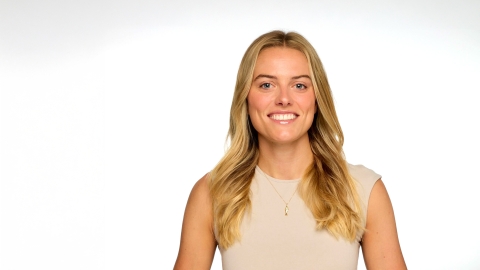Economics
Bachelor of Arts

Bucknell's economics major prepares graduates who succeed in careers as diverse as finance, law, public health and the nonprofit sector. Our small classes, taught by leading experts in international development, macroeconomics and applied microeconomics, immerse students in real-world issues. You'll also have opportunities to serve as a teaching and research assistant, and work side-by-side with faculty who predicted the financial crisis of 2008, and who are exploring important policy issues at the local, national and global level. Our majors have opportunities to conduct faculty-guided research backed by the Bucknell Institute for Public Policy and the Bucknell Center for Social Science Research.
Advice for Prospective Students Wanting to Study Economics at Bucknell
When you study economics at Bucknell, you're entering a fascinating, in-demand field where hands-on exploration yields important discoveries.
At Bucknell, you won't declare an economics major until your sophomore year. But there's plenty you can do right now, in high school, to set you up for success.
Here's what we suggest:
- If your high school offers courses in macroeconomics or microeconomics, be sure to take those.
- Focus on getting good grades in history, social studies and math.
- Try to take a class in all of the five core categories every single year of high school. That's four years of math, four years of science, four years of English, four years of history/social studies and four years of a foreign language. Note: If you indicate a preference for a specific major, it's OK to shift those around a bit. For example, prospective economics majors could swap two years of a foreign language for extra math, social studies or government courses.
- Mention in your application any economics-related books, perhaps Macroeconomics for Today or Freakonomics, that you read for personal enjoyment or a class assignment.
- Consider completing the following independent activities:
- Read The Armchair Economist or The Undercover Economist.
- Read about U.S. and world government structures and how these may or may not have developed/changed over time.
- Read about current, and past, international market relations between the U.S. and other countries.
- Watch webinars on entrepreneurship in the U.S.
- Work part-time (or volunteer) at a startup.
- Volunteer at a nonprofit to gain some insight on how grant-writing works.
Declaring the Economics Major for Current Students
Although anyone can take economics courses, Bucknell students must apply for admission to the economics major in the spring of their sophomore year.

It's unusual for an economics department to welcome so many perspectives. I believe our program is one of the best in the country when it comes to exposing students to different schools of thought.
Professor Nina Banks, economics
New Centers for Excellence
Advances the scholarship of data science by fostering cross-college, data-integrated learning and data literacy among students
Dominguez Center for Data Science

Amplifies cross-disciplinary programming, bringing the entrepreneurial mindset to the forefront of the Bucknell experience
Perricelli-Gegnas Center for Entrepreneurship & Innovation

Related Major: Mathematical Economics
The bachelor of science in mathematical economics incorporates economics, mathematics and statistics. Students graduate with the intellectual and the quantitative skills to grapple with questions at the interface of these two disciplines.
Deepen Your Education Through Internships
Bucknell economics majors have explored career paths and taken their studies further through internships at the New York Stock Exchange, Royal Bank of Scotland, the Pennsylvania Department of Labor & Industry and more. With this practical career experience and the deep knowledge of the economic forces that shape our world you'll gain in your major, you'll be prepared to follow whatever path you choose.
Learn more





